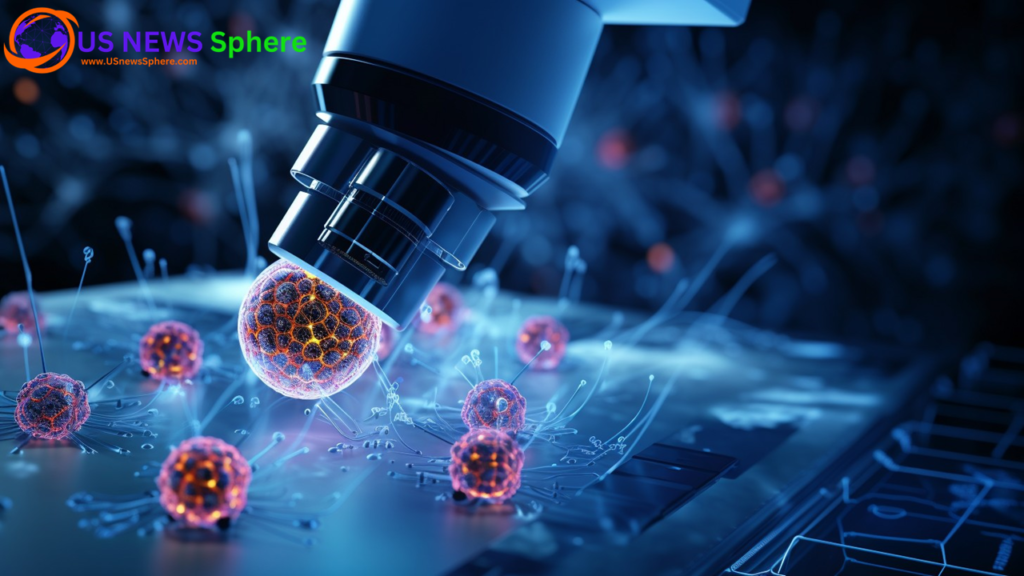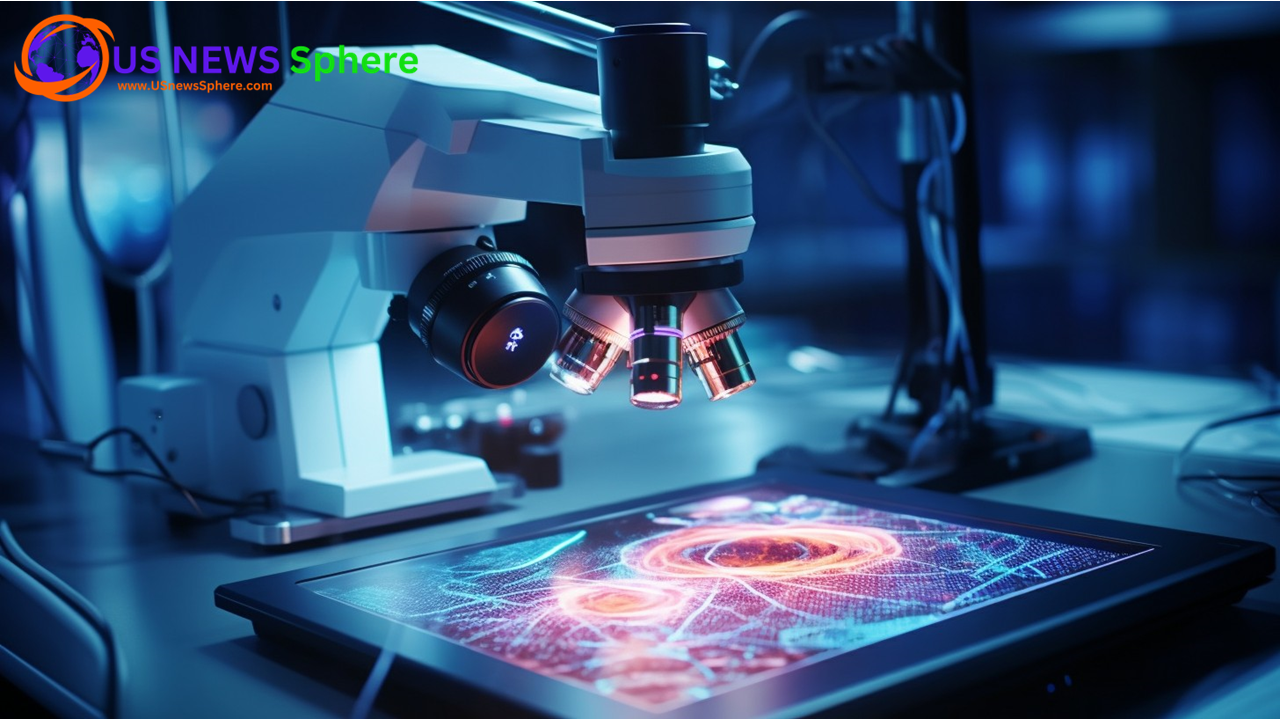In a groundbreaking collaboration, Google and the US Department of Defense (DoD) are harnessing the power of artificial intelligence to revolutionize cancer pathology. Their innovative tool, the Augmented Reality Microscope (ARM), promises to be a game-changer in early cancer detection, especially for smaller medical facilities.

[Google Collaborates with US Defense Department to Develop AI-Enabled Cancer-Detecting Microscope]
Table of Contents
Google; The Augmented Reality Microscope (ARM)
The ARM is not just any microscope. It’s an AI-backed device designed to detect cancer cells within seconds. With an estimated cost ranging between $90,000 to $100,000, it’s an affordable solution for early cancer detection in smaller hospitals. Google has taken its commitment to this project a step further by applying for a patent for this state-of-the-art AI tool. [npr]
How Does ARM Work?
The ARM operates by enhancing the ‘heat map’ in its field of view when potential cancer tissue is placed under observation. This heat map guides medical professionals by highlighting areas that are likely cancerous. If a pathologist wishes to delve deeper into a specific area, the microscope captures a new image in real-time, overlaying a fresh heat map for detailed examination.
The true marvel of ARM is its AI integration. Digital images taken by the microscope are processed by a computing unit equipped with a machine learning pattern recognizer. This recognizer, trained on vast datasets of cancerous slide images, can pinpoint regions in an image that might contain cancer cells, viruses, bacteria, or even parasite eggs.
ARM’s Current Status and Future Potential
While ARM is still in its developmental phase, initial findings are promising. The tool could be invaluable for pathologists, especially those without immediate access to expert second opinions. Early cancer detection is crucial, and even with advanced healthcare systems, many cases are diagnosed at advanced stages. ARM aims to change this narrative.
Currently, there are 13 ARMs globally, with one fully operational at a Mitre facility near Washington, DC. Mitre, a tech-focused nonprofit, collaborates with government agencies to address significant technological challenges.
Dr. Niels Olson, the chief medical officer of the DoD’s Defense Innovation Unit (DIU), emphasized ARM’s potential as a supportive tool for pathologists. He stated, “It’s not just about identifying cancer but also confidently ruling it out. Having an Augmented Reality Microscope would be like having an additional expert by your side.”
Conclusion
The partnership between Google and the US DoD signifies a monumental step in leveraging AI for medical advancements. The Augmented Reality Microscope holds the promise of transforming cancer pathology, making early detection more accessible and accurate. As technology and healthcare continue to intersect, innovations like ARM pave the way for a brighter, healthier future.





